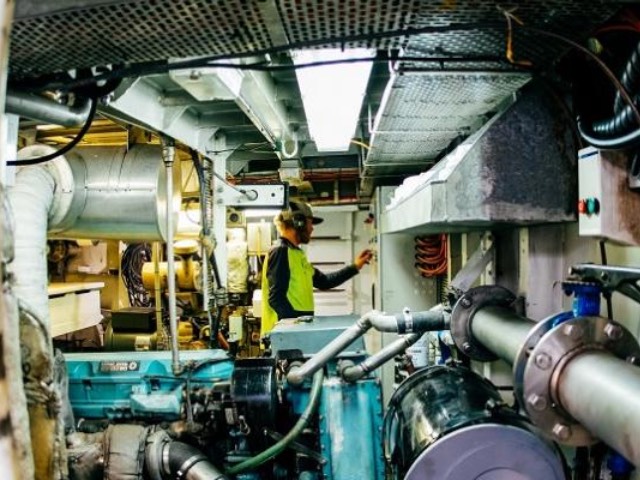As a part of global measures to reduce harmful nitrogen oxide emissions, marine diesel engines with a power output of greater than 130kW must comply with NOx emission limits.
AMSA has introduced measures to assist domestic commercial vessel (DCV) owners and operators comply.
Nitrogen oxides (NOx) are air pollutants emitted by engines, which can have a detrimental effect on human health and the environment.
NOx are known to damage the lungs and have also been linked to heart disease, lower birth weight in newborns and increased risk of premature death.
On a broader scale, the emissions contribute to the pollution of coastal waters and poor air quality in the form of smog. They can also lead to acid rain, which in turn damages crops, vegetation and infrastructure.
The maritime industry is reducing NOx emissions by complying with NOx emission limits for marine diesel engines with a power output of greater than 130kW.
In Australia the NOx emission limit that applies is known as Tier II – it applies to marine diesel engines installed on vessels constructed or undergoing a major conversion after 1 January 2011. The less polluting Tier III engines are welcomed in Australia but are only mandated in North America and Northern Europe.
An engine international air pollution prevention (EIAPP) certificate and a technical file must be carried on board for each engine, to confirm it applies with these emission limits.
We have introduced measures that will assist DCV owners and operators comply with these requirements. Under the new Exemption 44, DCV owners and operators can hold specific alternative evidence to demonstrate their engines are likely to meet the NOx emission limits. This will be available until amendments to Marine Order 97 are in place, from 15 December 2021. These amendments will put the onus on engine suppliers to provide the EIAPP certificate and technical file. Industry will soon be invited to provide input on the amendments to Marine Order 97.









































